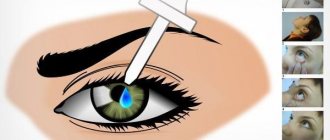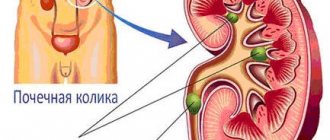The term appetite means the desire to eat. This is a signal to the body that it needs to replenish nutrients. To maintain health and provide necessary microelements, nutrition must be balanced and timely. This becomes difficult if a person suddenly loses the desire to eat, and the thought of food, like food, causes unpleasant sensations. This indicates a painful condition. If you feel well, when a person is cheerful and energetic, eating is a pleasant and joyful ritual.
A person needs medical support if there is no appetite for more than 2 weeks. The doctor will determine why your appetite has disappeared and prescribe appropriate treatment. Appetite cannot disappear for no reason; any healthy body experiences positive emotions while eating.
Smoking
Smoking is a stimulant and irritant. This may cause gastric stimulation, which may result in nausea and dizziness. This can affect your gastrointestinal tract and lead to loss of appetite.
Many people who quit smoking begin to feel hungry again and, on average, gain 10 percent of their body weight. But, they feel better, healthier and have more money to buy healthy food.
Symptoms
To realize that your appetite has really decreased and find the root cause, determine what the phenomenon is expressed in:
- A person is not overtaken by the feeling of hunger. The desire to eat appears after the brain's neurons signal that reinforcement is required. If there is no signal, it means that there is a malfunction in the functioning of some organs.
- Nausea, vomiting. The body causes these processes to cleanse the contents of the stomach in case of danger to human health. This symptom is extremely important because... in combination with other signs allows you to establish a diagnosis.
- Impotence. Occurs when the body is weakened as a result of illness, severe physical or mental stress. It is difficult for a person to carry out daily rituals of self-care, he gets tired quickly, the body protects itself from even greater fatigue, without wasting energy even on digesting food.
Acid reflux
Gastroesophageal reflux disease (GERD), also called acid reflux, is another digestive disease that can reduce your appetite.
People with GERD experience constant heartburn - the contents of their stomach may return to the esophagus after eating. They may wake up in the middle of the night with a sour taste in their mouth, which may prevent them from eating. Their throat may also become irritated, even to the point of developing Barrett's esophagus.
Balanced food composition
A lack of protein can lead to poor health. With a lack of them in the diet, pensioners complain of weakness and fatigue, almost constant fatigue and frequent dizziness. At the same time, the process of tissue destruction of many organs occurs and their functionality decreases. To prevent this from happening, you need to eat meat. It is also rich in calcium, which is good for bones, and iron, which is necessary for hematopoietic processes.
A meat dish should be on the menu every day. If it is difficult for a pensioner to chew it, care must be taken to eliminate this problem. Liver dishes should be offered to an elderly person no more than once a week. Protein is also found in milk, cheese and eggs.
The absorption of beneficial microelements in old age deteriorates by 2 times. Doctors attribute this to loss of appetite, worsening living conditions and the need to take large amounts of medication. That is why it is extremely important that a pensioner receives vitamins in sufficient quantities. Each of them is necessary.
Vitamin A is an excellent antioxidant. It provides protection against some forms of cancer. Found in fresh fruits, vegetables, milk, liver and egg yolks. This vitamin is “responsible” for healthy skin and good vision.
Vitamin D ensures the functioning of the musculoskeletal system. It is produced under the influence of sunlight. Rarely going outside, an elderly person should receive a large amount of it with food. It is found in fish and shrimp.
Vitamin C improves immunity and restores appetite. It is found in citrus fruits, broccoli, kiwi, black currants and strawberries. Men need more vitamin C because the male body absorbs it slightly less well than the female body.
Vitamin E has antioxidant and restorative properties. It is found in large quantities in vegetable oils and margarines.
Vitamin B12 contributes to the excellent condition of connective tissues. Due to a decrease in the amount of hydrochloric acid in the stomach of an elderly person, the process of absorption of this vitamin worsens. It is recommended to take it as a dietary supplement.
COPD
The acronym stands for chronic obstructive pulmonary disease and refers to several types of lung diseases, including emphysema, chronic bronchitis and severe asthma.
COPD can reduce appetite and lead to exhaustion. Part of the problem is that loss of lung function can cause the patient to avoid activity, which in turn leads to loss of appetite. Patients with COPD may also be depressed, which also destroys appetite.
Intoxication of the body
Appetite is regulated by a special food center located in the brain. When toxins enter the body, the functioning of this structure is temporarily blocked, since the main work of all systems at that moment is aimed at trying to get rid of dangerous substances. Intoxication can be caused by:
- food poisoning;
- overdose of nicotine or alcohol;
- exposure to chemical compounds contained in household chemicals, cosmetics or perfumes, as well as paint used in the production of fabrics, and other harmful components contained in objects with which a person has frequent direct contact;
- carbon monoxide poisoning;
- use of medications;
- acute infection (flu, ARVI, hepatitis, etc.).
As a rule, after toxic substances are removed from the body, appetite returns.
Source: depositphotos.com
Oncology
The most common cancers that suppress appetite include ovarian, stomach, colorectal, pancreatic, and bladder cancer. Loss of appetite may be the result of cachexia, a metabolic change caused by cancer or cancer treatment.
Diagnostic tests can detect each of these cancers, and early detection offers the best chance of successful treatment, so don't hesitate to see your doctor about your loss of appetite.
What to do if you have poor appetite
If the condition is not critical and does not require medical intervention, it is suggested to use the following methods to increase appetite:
- Drink at least 1.5-2 liters of water daily, this will help speed up your metabolism and increase your appetite.
- Accelerate food digestion with the support of drugs - Pancreatin, Mezim. They will help process leftover food that is not digested by the body on its own.
- For premenstrual syndrome in women, nettle infusions, chamomile tea, and cranberry juice will help.
- For viral diseases, ARVI, take antibacterial drugs. Maintain a water-drinking balance to remove toxins from the body as quickly as possible.
- Establish a proper nutrition system. Replace fast food with healthy food, eat more often, in small portions, avoid fatty foods, eat only lean meat and fresh vegetables, eat on time, and do not go hungry.
- Complete a medical examination every year and follow the recommendations prescribed by your doctor.
You cannot force yourself to eat, this will make the situation even worse. Only food that is eaten with pleasure is healthy; a meal should bring only pleasant sensations.
You should not self-medicate if poor appetite is observed for a long time, for more than 2 weeks. You need to seek help from a therapist. After testing, it is possible to identify and eliminate the cause of the disease. If pathologies requiring more highly specialized treatment are identified, the doctor will refer you to the appropriate specialist.
Often complaints of decreased appetite require the help of a psychologist, psychotherapist, or neurologist. Appetite may disappear due to disorders of the human psyche, which determines conscious and unconscious behavior. Clinical depression requires medication.
Modern methods of treatment for difficulties in eating normalize the condition, restore appetite, give satisfaction from food, which improves a person’s quality of life. Health automatically significantly improves the standard of living, a person becomes more efficient, and solving current problems is much easier for him than for someone exhausted by starvation.
Cancer treatment
Several common forms of cancer treatment - chemotherapy, radiation and immunotherapy - focus on the stomach and intestines, and this can lead to loss of appetite. The side effects of these medications—dry mouth, nausea, and mouth ulcers—can also cause patients to avoid eating. Doctors and support groups can recommend medications to help manage side effects and loss of appetite.
Danger of loss of appetite
To understand the dangers and possible harm to the body that prolonged hunger causes, it is important to understand why meals are so important. Food is the connecting element of the human body with the outside world. It performs vital functions. Firstly, it provides energy for body processes. Secondly, it reproduces new cells that help cover energy expenditure, increase the body’s resistance to diseases, and assist in the formation of enzymes and hormones. And finally, they contribute to the coordinated functioning of the body’s internal processes. A decrease in appetite upsets the harmonious ratio of essential nutrients in the body, leading to dehydration. If sugar does not enter the body, then an excess of ketone bodies is formed in the human body, which become toxic. Constant refusal of food leads to anorexia, a disorder that leads people to death.
An interesting fact is that during hunting, during hunting, the level of substances necessary for life in the body of our ancestors decreased, so that in the process of obtaining food, the need for food became critical. Now people have no longer the need to obtain food through hunting; the time and frequency of meals now depends on the appearance of appetite.
Loss of appetite is not a harmless manifestation, as it sometimes seems. If, along with a reluctance to eat, you experience nausea, stool upset, heartburn, flatulence, or bad breath, immediately consult a doctor. If you notice at least two of the listed symptoms, this may indicate gastritis or an ulcer. Ignoring the signs leads to serious complications, which can result in irreversible consequences. Delaying treatment is extremely dangerous.
Prevent constipation or dehydration
Constipation in old age is caused by a decrease in the amount of mucus in the intestines. That is why it is important that the pensioner eats food of a delicate consistency, eats soups, drinks water, teas and drinks. Be sure to eat vegetables and fruits.
Liquid food and sufficient water ensure normal kidney function. Since fewer nephrons are produced in old age, care must be taken to ensure that the elderly person drinks regularly. You need to drink clean water often, but in small quantities. It is better if it is warm.
Diagnostics
In this case, a comprehensive diagnosis is required, which may include the following laboratory and instrumental research methods:
- general analysis of urine and blood;
- blood test for hormones;
- blood test for the presence of allergens and sugar;
- detailed biochemical blood test;
- Ultrasound of the abdominal organs;
- liver tests;
- diagnosis of the thyroid gland;
- test for HIV and STDs.
Normal liver function tests
Depending on the current symptoms and the collected medical history, the diagnostic program may change. A doctor can determine the exact reason why appetite disappears only after conducting all the necessary tests.










